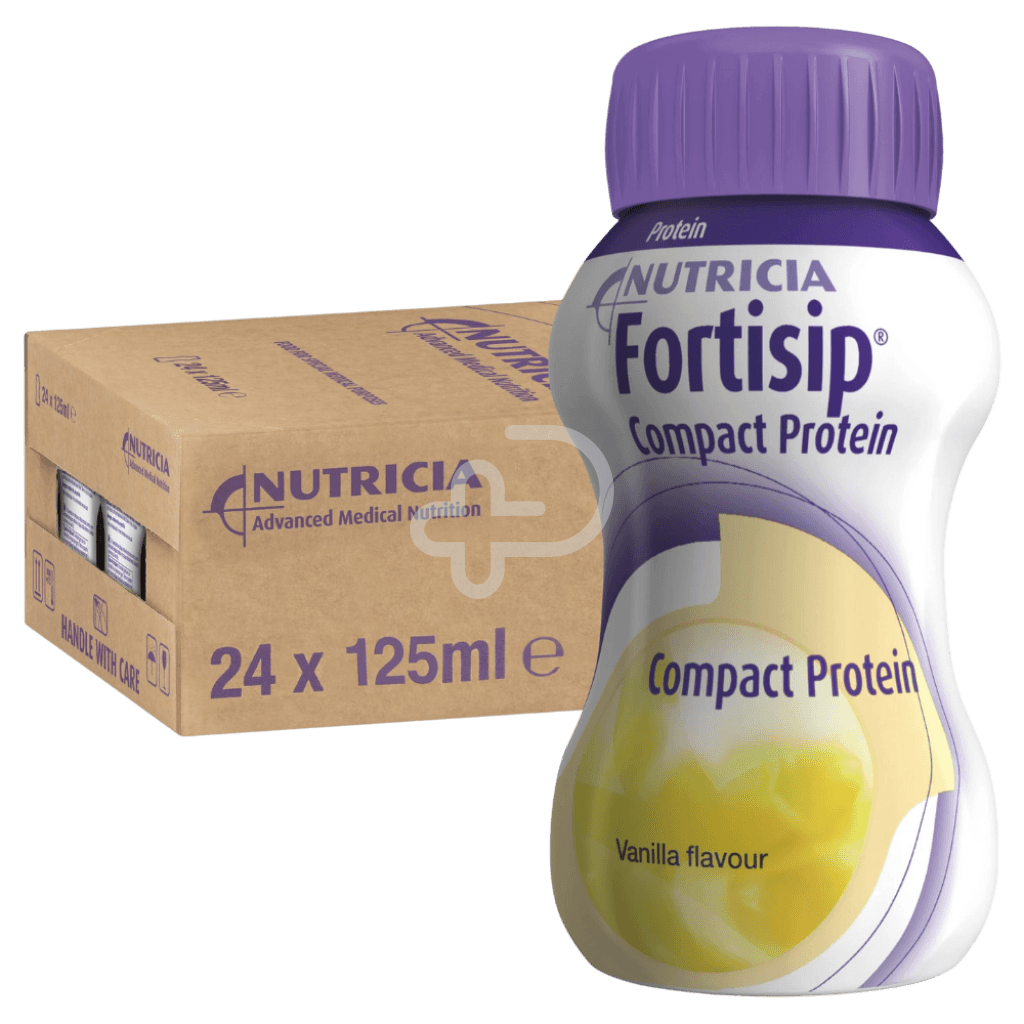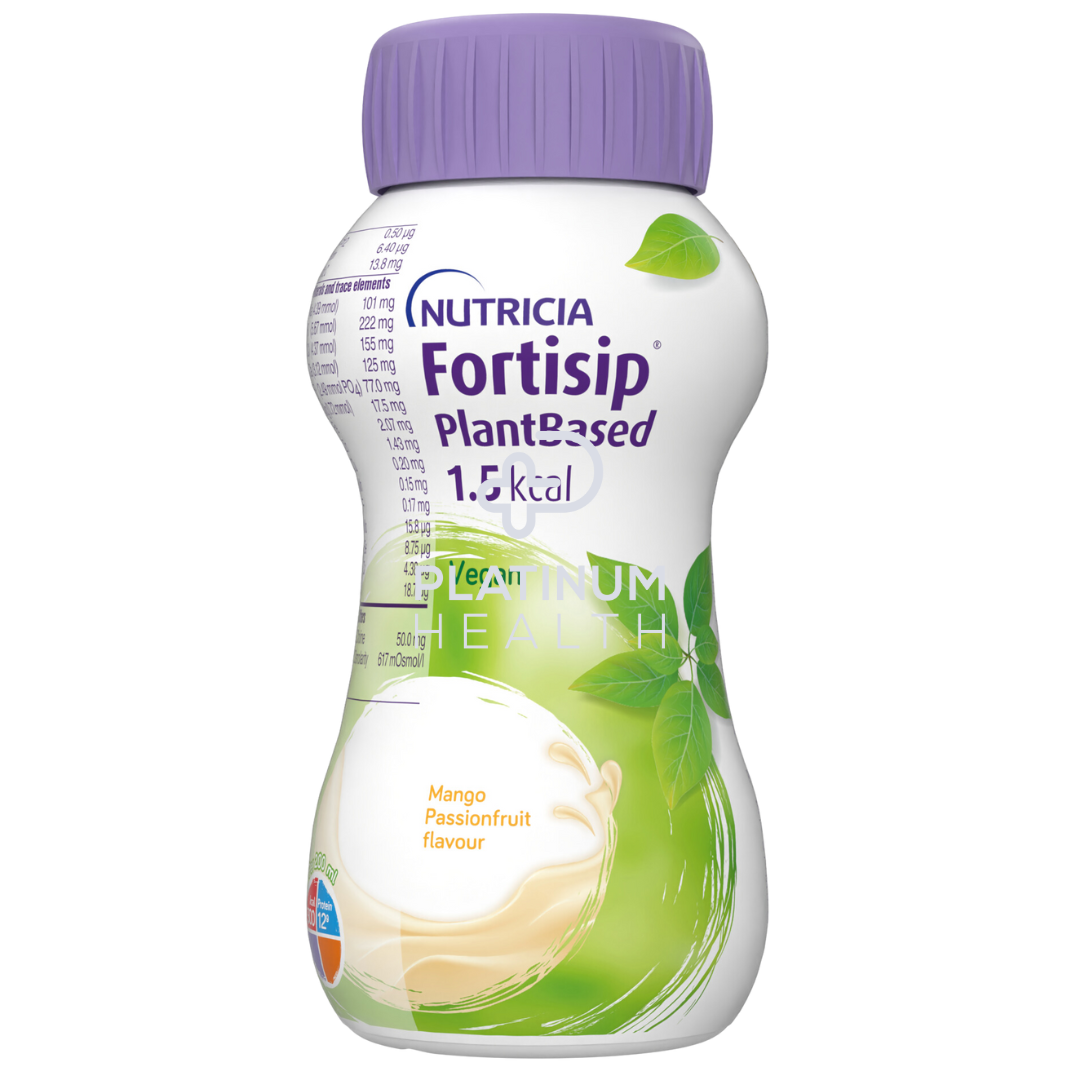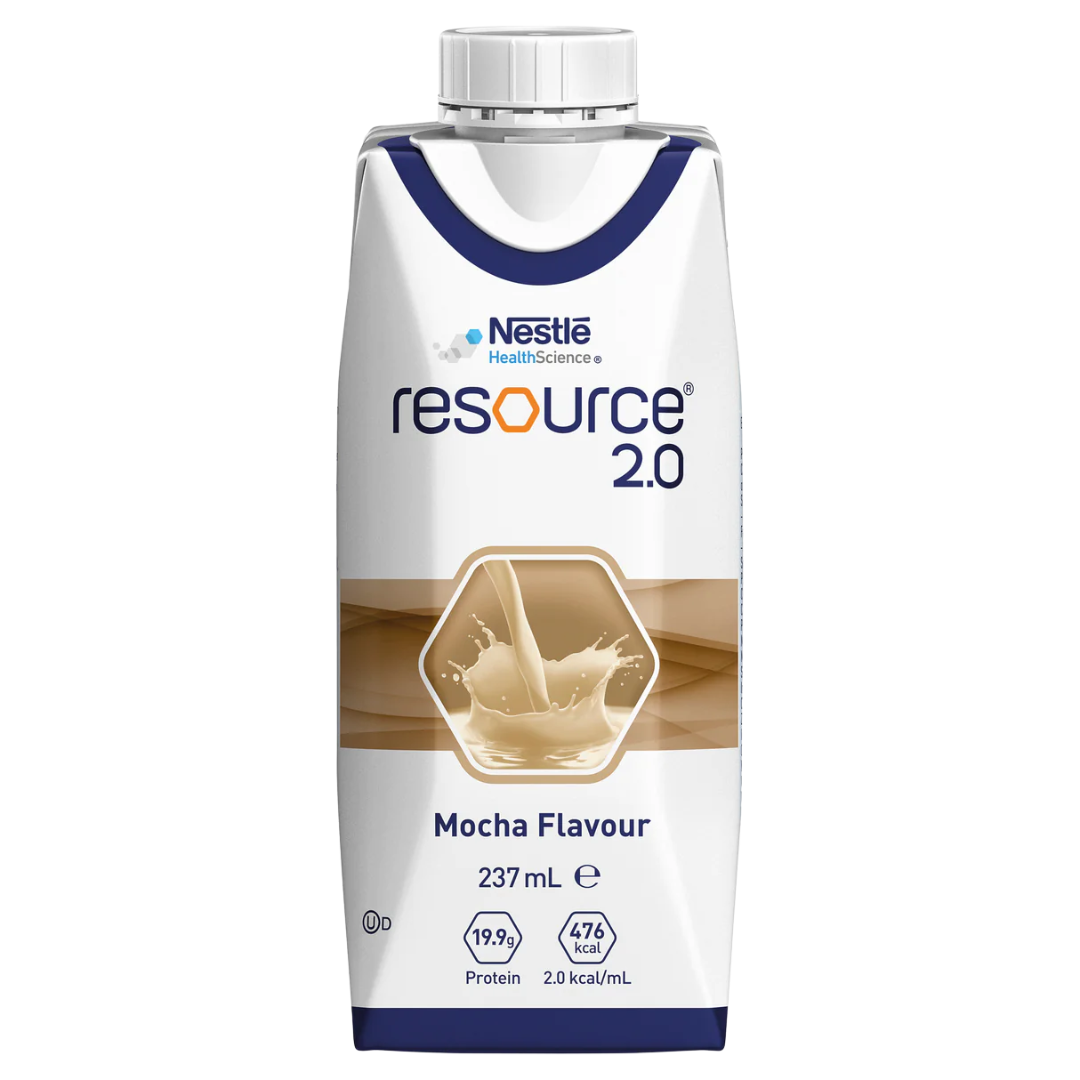Protein vs High-Calorie Drinks: What’s Best for Appetite, Weight & Recovery?

Not all nutrition shakes are created equal—and that’s a good thing.
If you’re supporting someone who’s struggling with poor appetite, weight loss, or recovery from illness, you’ve likely come across protein drinks and high-calorie shakes. They may look similar on the shelf, but these formulas serve very different goals.
Understanding the difference between protein drinks (like Fortisip Compact Protein) and high-calorie shakes (like standard Fortisip or Resource drink) is key to making the right nutritional choice—whether you’re a carer, clinician, or simply shopping for yourself or a loved one.
What Are Protein Drinks and Who Are They For?
Protein drinks aren’t just for gym junkies or bodybuilders. In aged care and recovery settings, they play a powerful role in helping individuals maintain muscle mass, support healing, and prevent further weight loss—especially when solid food intake is low.
Why Protein Matters (Especially as We Age)
As we get older, muscle mass naturally declines—a condition known as sarcopenia. According to Harvard Health, this age-related muscle loss can impact balance, mobility, and independence. The solution? Protein—and often more than people think.
In fact, older adults require more protein per kilogram of body weight than younger people to maintain muscle strength and function. The National Seniors Australia even calls it "rocket fuel" for ageing muscles.
But here’s the catch: getting enough protein through diet alone can be difficult—especially for individuals with reduced appetite, swallowing difficulties, illness, or fatigue.
That’s where protein drinks come in.
What Are Protein Drinks?
Protein drinks are ready-to-consume nutritional supplements that deliver a concentrated dose of high-quality protein—typically between 15 to 30 grams per serve—in a small, easy-to-digest format. They’re ideal for:
- People recovering from surgery, illness, or hospitalisation
- Seniors at risk of malnutrition or frailty
- Individuals with high protein requirements due to chronic conditions
- Anyone experiencing poor appetite or difficulty chewing/swallowing
According to WebMD, these drinks can help fill nutritional gaps, particularly in people who aren’t meeting their needs through food alone. However, the Mayo Clinic advises using them as a supplement, not a meal replacement, unless directed by a healthcare provider.
What Are High-Calorie Drinks and Who Are They For?
When the goal is to gain or maintain weight, especially during illness or recovery, high-calorie drinks can be a game-changer. These drinks are nutritionally dense, offering a substantial energy boost in a small volume—which is exactly what many people need when food intake is low or appetite is reduced.
Why High-Calorie Drinks Matter
For individuals facing unintentional weight loss, high-calorie drinks provide an efficient way to increase daily energy intake without having to consume large meals. According to Cancer Research UK, they’re especially helpful for people undergoing cancer treatment, experiencing nausea, fatigue, or simply struggling to eat enough due to illness or age-related decline.
These drinks can also support recovery from surgery or hospitalisation, as well as chronic conditions that demand higher caloric needs—like COPD, dementia, or renal disease.
What Are High-Calorie Drinks?
High-calorie drinks are oral nutrition supplements designed to deliver energy (calories), protein, carbohydrates, fats, and essential vitamins and minerals—all in one compact serve. Many provide 300+ calories per bottle, sometimes even more. As GoodRx Health explains, these drinks are valuable tools for people who need “more calories in less space.”
They’re ideal for:
- People with low appetite or food aversions
- Elderly adults with difficulty finishing meals
- Patients undergoing chemotherapy or battling chronic illness
- Those recovering from injury, burns, or surgery
- Individuals with high energy needs and limited mobility
A study in the American Journal of Clinical Nutrition also highlights how oral nutritional supplements help improve weight outcomes and reduce complications in vulnerable populations, especially when combined with professional care.
Signs Someone May Need One Over the Other
Choosing between a high-protein drink and a high-calorie drink isn’t just about label-reading—it’s about understanding the underlying health needs of the person you're supporting. Both options offer crucial benefits, but the right fit depends on the individual’s nutritional goals, energy levels, and overall health condition.
Let’s break down some common signs to help guide your choice.
When a Protein Drink Might Be the Right Call
Protein drinks are often the better option when:
1. Muscle loss is noticeable
If your loved one appears to be losing muscle mass—think thinner arms and legs, difficulty rising from a chair, or visible frailty—it could be a sign of sarcopenia (age-related muscle loss). According to Harvard Health, older adults may need more protein than younger people to maintain muscle health.
2. They’re recovering from surgery or injury
Healing requires protein. Whether it’s a hip replacement or a wound that’s slow to close, protein supports tissue repair and immune strength.
3. Appetite is okay, but their meals are low in protein
If someone is eating regularly but tends to skip protein-rich foods (like meat, eggs, or legumes), a protein drink can help fill in the nutritional gaps.
4. They're staying active
For seniors engaging in light exercise or physiotherapy, protein helps rebuild muscle and boost strength over time. WebMD confirms that this can be especially helpful when paired with resistance activities.
When a High-Calorie Drink May Be More Suitable
High-calorie drinks are often needed when:
1. There’s unintentional weight loss
If someone is dropping weight quickly or clothes are suddenly looser, it’s a red flag. As Cancer Research UK highlights, high-calorie drinks help boost daily intake without overwhelming the person with large meals.
2. Their appetite is low
Some people just don’t feel hungry anymore—whether it’s due to illness, medication, depression, or age-related changes. A small-volume, high-calorie drink can offer critical nutrition without the pressure to eat full meals.
3. They’re dealing with fatigue or illness
Chronic illness can make even chewing and swallowing feel like a chore. In these cases, energy-dense drinks are easier to consume and digest, helping maintain strength when food isn't appealing.
4. They're experiencing cachexia or frailty
In more advanced stages of illness or during cancer treatment, energy preservation becomes key. This study supports the use of calorie-dense drinks to help minimise muscle wasting and support energy levels in such scenarios.
By recognising these signs early, carers and families can provide targeted nutritional support—avoiding unnecessary weight loss, boosting energy, and helping loved ones feel more like themselves.
Protein Drinks to Support Muscle Health
1. Fortisip Compact Protein

Best for: Individuals experiencing muscle loss, recovering from illness, or needing high protein in a small volume.
Why You’ll Love It:
Each Fortisip Compact Protein bottle delivers 18g of protein and 300kcal in just 125mL—perfect for those with low appetite but high nutritional needs. It’s also available in flavours designed for sensitive palates, such as Neutral and Cool Red Fruits, which are ideal during cancer treatment or after surgery.
Flavours Available: Vanilla, Mocha, Neutral, Strawberry, Cool Red Fruits
2. Nestlé Resource Protein

Best for: Seniors or individuals with mild malnutrition or sarcopenia who need daily protein reinforcement in a more familiar format.
Why You’ll Love It:
With 12.5g of protein per serve, this tasty drink supports tissue repair and immune function. Slightly larger than Fortisip Compact, it's great for daily sipping and is easy to integrate with meals.
Flavours Available: Vanilla, Coffee, Forest Fruits
High-Calorie Drinks for Energy Support & Weight Maintenance
1. Fortisip Plant-Based

Best for: Individuals needing extra energy who follow a plant-based or dairy-free diet.
Why You’ll Love It:
With 1.5kcal/mL, this nutritionally complete shake delivers energy without animal products—making the Fortisip Plant Based ideal for those with dietary restrictions, ethical preferences, or lactose intolerance. It's smooth, easy to digest, and packed with essential nutrients.
Flavours Available: Manga Passionfruit, Mocha
2. Nestlé Resource 2.0

Best for: Those experiencing unintentional weight loss, appetite decline, or chronic illness that increases nutritional demand.
Why You’ll Love It:
The Nestle Resource 2.0 is an energy-dense option that packs 475kcal and 18g of protein into one compact bottle—ideal for individuals needing serious energy in minimal volume. Suitable for fluid-restricted diets and incredibly helpful in preventing further decline in frail or recovering patients.
It’s Not One-Size-Fits-All
When it comes to nutritional support, choosing between a protein-rich drink and a high-calorie shake isn’t just about what’s on the label—it’s about matching the drink to the person’s actual needs. Whether you’re supporting someone through illness, ageing, or recovery, understanding the purpose behind each drink can make all the difference in achieving their health goals.
If you’re ever unsure, it’s always best to consult a GP, dietitian, or care coordinator to guide you based on the person’s medical background, appetite, and physical condition.
Need Help Deciding? Visit Us in Epping!
Still weighing your options? Come see us in person! At our Epping Showroom (Unit 2/51 Trafalgar Rd, Epping VIC), you can:
- Speak with our friendly team about nutritional supplements and care strategies
- See a wide selection of Fortisip and Nestlé Resource drinks
- Learn about NDIS or Home Care funding eligibility
- Explore additional mobility and care aids to support holistic wellbeing
Whether you're a family caregiver or a professional support worker, we’re here to help you choose confidently, and with care.
Important Disclaimer
This blog is intended for informational purposes only and draws from publicly available healthcare sources. It does not substitute medical advice, diagnosis, or treatment. Always consult a qualified healthcare professional, such as a doctor or dietitian, before introducing any new nutritional supplement—especially for elderly individuals or those with underlying medical conditions.
Product suitability may vary based on individual health status, allergies, and care plans. Platinum Health is not liable for any adverse outcomes resulting from reliance on this content without proper medical consultation.
